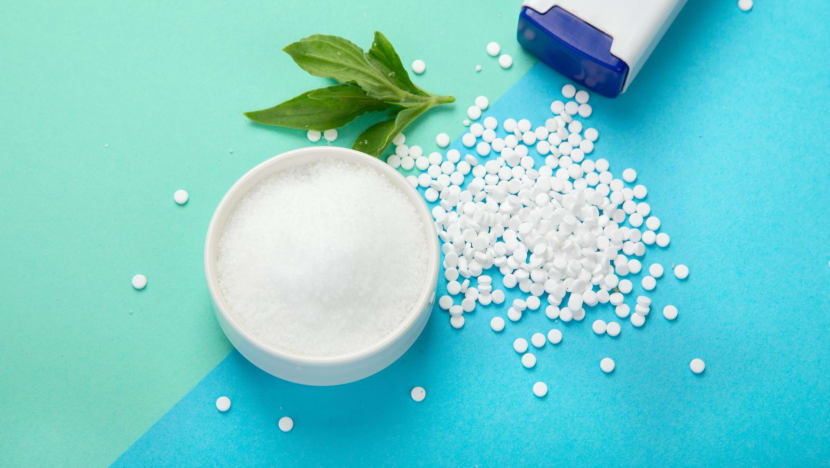World Health Organization advises against using artificial sweeteners for weight control
Sweeteners have no long-term benefit in reducing body fat and could increase the risk of type 2 diabetes, cardiovascular diseases and mortality in adults, says the WHO.

File photo of sweeteners. (Photo: iStock)
Non-sugar sweeteners, such as saccharin and stevia, should not be used to control body weight, the World Health Organization (WHO) said on Monday (May 15).
The recommendation includes all synthetic and naturally occurring or modified sweeteners that are not classified as sugars, the WHO said in its new guideline.
Sweeteners are low- or no-calorie alternatives to sugar and are generally marketed as aiding with weight loss or maintaining a healthy weight.
They include acesulfame K, aspartame, advantame, cyclamates, neotame, saccharin, sucralose, stevia and stevia derivatives.
WHO's recommendation does not apply to people with pre-existing diabetes.
In its advisory, the WHO also warned against the use of such sweeteners to reduce the risk of noncommunicable diseases like hypertension and heart disease.
NO LONG-TERM BENEFIT IN REDUCING FAT
The use of non-sugar sweeteners does not confer any long-term benefit in reducing body fat in adults or children, said the WHO in its recommendation, which is based on the findings of a "systematic review of the available evidence".
Results of the review also suggest that there may be potential undesirable effects from long-term use of sweeteners, including the increased risk of type 2 diabetes, cardiovascular diseases and mortality in adults.
"Replacing free sugars with non-sugar sweeteners does not help with weight control in the long term," said Francesco Branca, WHO's director for nutrition and food safety.
These sweeteners are not essential dietary factors and have no nutritional value.
"People need to consider other ways to reduce free sugars intake, such as consuming food with naturally occurring sugars, like fruit, or unsweetened food and beverages," he said.
They should also reduce the amount of sweet food in their diet, Dr Branca said.
The WHO said that the recommendation does not apply to personal care and hygiene products containing non-sugar sweeteners, such as toothpaste, skin cream, and medications.
It also does not apply to low-calorie sugars and sugar alcohol, which are sugars or sugar derivatives containing calories and are not considered non-sugar sweeteners.
The WHO said that the recommendation was "conditional", given that the link observed in the evidence between sweeteners and disease outcomes "might be confounded by baseline characteristics of study participants and complicated patterns" of sweetener use.
“This signals that policy decisions based on this recommendation may require substantive discussion in specific country contexts, linked for example to the extent of consumption in different age groups,” it added.













